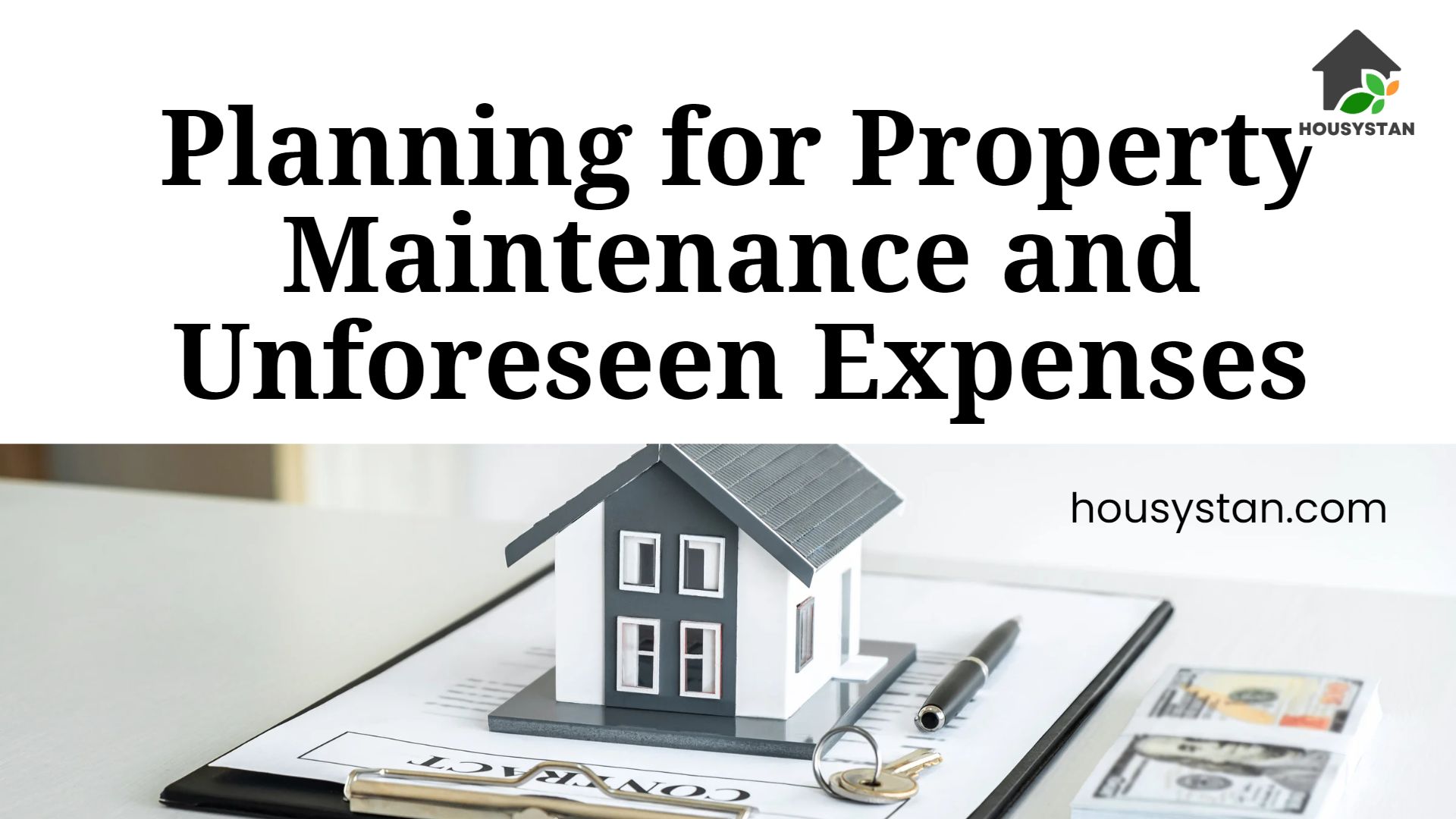Planning for Property Maintenance and Unforeseen Expenses: A Budgeting Guide
Read latest blogs and articles from Housystan

The Information mentioned here was last updated on:
29/1/2026Planning for Property Maintenance and Unforeseen Expenses: A Budgeting Guide
Owning real estate in any city or region comes with the responsibility of regular upkeep and being prepared for unexpected costs. Whether you have a home in Houston, manage rental properties in Atlanta, or invest in commercial spaces in Los Angeles, proactive financial planning helps protect your investment and ensures long-term value. This budgeting guide is designed to help property owners across the United States understand the best strategies for managing both routine maintenance and surprise expenses, ensuring your assets remain in top condition no matter where you are located.
First, assess your property's age, location, and features. Homes in coastal areas like Miami may require more frequent attention due to humidity and salt air, while properties in northern cities such as Chicago might need seasonal checks for snow and ice damage. Creating a detailed inventory of all systems—HVAC, plumbing, roofing, electrical—specific to your region, helps you predict when repairs or replacements may be needed. This geographic approach allows you to forecast costs more accurately and avoid common pitfalls faced by local property owners.
- Verified Tenants/Buyers
- Unlimited Property Listing
- Zero subscription/charges fee
Next, establish a comprehensive budget. Experts recommend setting aside 1-3% of your property’s value annually for maintenance. For example, a $400,000 home in Dallas should have $4,000 to $12,000 earmarked for upkeep each year. In addition, build an emergency fund equal to at least three months’ worth of mortgage payments or rental income. This financial cushion protects you from sudden issues, such as burst pipes during winter in Denver or unexpected roof leaks in Seattle’s rainy climate.
Stay organized using digital tools or spreadsheets to track routine tasks and upcoming expenditures. Schedule regular inspections, from termite checks in warmer states like Florida to gutter cleaning in areas with heavy autumn foliage like New England. By keeping detailed records, you’ll stay ahead of small repairs before they become major expenses, ultimately saving money and stress.
Finally, review your insurance policies annually to ensure adequate coverage for both major disasters and everyday mishaps. Policies in regions prone to natural events—like earthquakes in California or hurricanes along the Gulf Coast—may require additional riders or specialized coverage.
By tailoring your budgeting approach to your property’s unique location and needs, you’ll safeguard your investment and enjoy greater peace of mind, whether you’re maintaining a single-family residence or managing a multi-unit complex. Smart planning today means fewer surprises tomorrow, no matter where your property is located.